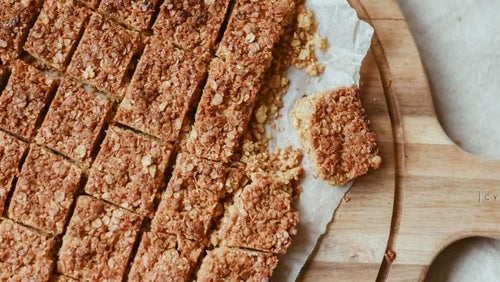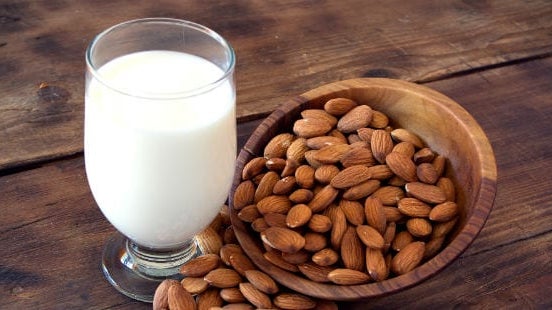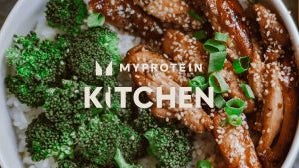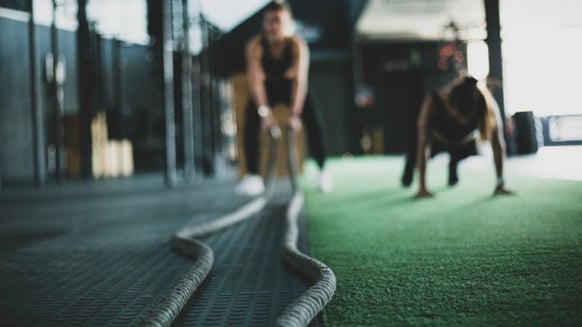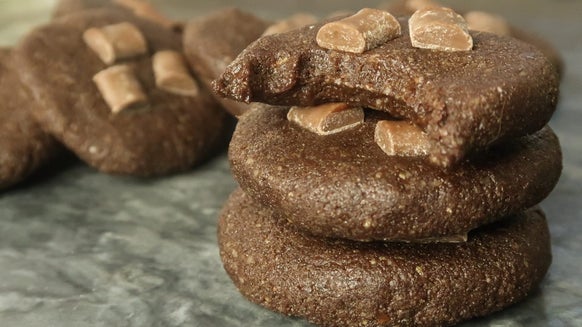
Whether you’re aiming to set a new PB, preparing for your first half marathon, or just increasing movement to lose weight or improve well-being, a healthy nutrition plan will help you achieve your goals and benefit your running.
This article covers the fundamentals you need to consider and specifically focuses on the optimal pre and post-run feeding strategy.
- Why is Nutrition Important for Runners?
- What to Eat Before a Run
- What is Fasted Cardio?
- What to Eat After a Run
- What's Important to Remember When Fueling for a Run?

Why is Nutrition Important for Runners?
Nutrition is what fuels the body for exercise performance and helps our bodies recover.
An essential element of a nutrition plan for runners is their calorie and macronutrient needs.1
Running will significantly increase your daily energy expenditure and your energy intake needs to match according to your goals.1
It’s also important to consider where these calories come from and, for most runners, carbohydrates should make up the majority of their diet.
Carbohydrate recommendations for runners range from 4-10g/kg/d.1 This will vary depending on your goal and training program but as a general recommendation, those aiming to maximize performance should aim for the top end of this. For those running with fat loss in mind, a lower carbohydrate intake will be more appropriate.
For recovery, it’s important to replace the glycogen used during a run, consume protein to help repair muscles, and adopt a well-balanced diet to consume a wide variety of micronutrients.1

Macro Calculator | How to Calculate Your Macros for Flexible Dieting and IIFYM
Use our calculator to work out your macros....
What to Eat Before a Run
In addition to the daily calorie and macronutrient requirements required to optimize running performance, timing your nutrition around your training is the best way to get the best out of each and every run.2
There are a number of factors that determine which is the best pre-run meal. These include the length of the run, the intensity, and the overall goal of the session (e.g. improved performance or fat loss).
The time you choose to run will also heavily affect the feasibility of a certain nutrition strategy. For example, an early morning run may be best done fasted or after a light snack and a late afternoon run should be performed approx. 2-3 hours following a meal.2
For those focused on performance improvements, as a general guide, it's best to include a meal or snack high in carbohydrates which is also low in fat and fiber to make it easy to digest.
- Banana and snack bar
- Cereal and milk
- Oatmeal with fruit
- Chicken sandwich
- Tuna and a jacket potato
- Toast and jam
If running for fat loss, performing a run with low glycogen availability will increase the amount of fat used as a fuel during exercise.3 So, running fasted or after a low carbohydrate meal may be best.
- Omelette
- Chicken salad
- Grilled salmon and vegetables
- Whey protein shake
What is Fasted Cardio?
The idea of fasted cardio is performing a cardio workout without eating a meal or snack first. Most of the time, fasted cardio occurs in the morning with a “fast” of not eating for the past 6-10 hours prior. While some athletes swear by fasted cardio for fat lass, others find it difficult.
Benefits of Fasted Cardio
1. Burning stored energy — fat
Normally, people want to try fasted cardio because they think that working out without eating beforehand forces your metabolism to adapt. However, the type and intensity of exercise being performed also has an impact on the way that your body chooses to fuel your workouts. The ideal conditions for fat burning include having no recently ingested glucose (no food in the last 4-8 hours) and not working at an intensity high enough to damage/break down muscle tissue.

2. Works with intermittent fasting
Intermittent fasting, or eating only during a short window of time throughout the day, means that a morning workout would most likely occur during a fasting period. While there are many different types of intermittent fasting and research is being conducted on all of its potential benefits and side effects, fasted cardio would easily fit into many of these plans.
3. Can be done immediately upon waking
There is no better benefit of fasted cardio than the fact that you eliminate the time it takes to consider fueling for your workout. Typically, you want to wait about 30 minutes after eating to start working out, which means if your goal is a 6am workout, you have to finish your morning meal before 5:30. With fasted cardio, you don’t have to wake up earlier to make a pre-workout meal or snack, you don’t even have to chug a protein shake — just get straight to your workout and worry about the nutrition after.

Is Fasted Cardio Safe?
Unless you have blood sugar control issues that would make it unsafe to exercise without a proper meal or snack, it’s typically safe for most people to perform a low to moderate intensity fasted cardio workout.1 Most training plans have “active recovery” or moderately light cardio days built in, which are good opportunities for trying fasted cardio.
However, if you want to attack high intensity interval training or long-distance training runs, swims, or bike rides, it’s best to schedule those during times when you are properly fueled.
What to Eat After Your Run
Following a run, it’s important to replace the fuel used to allow your muscles to recover and help prepare for your next session.
The best foods for this are high glycemic carbohydrates which have been shown to restore glycogen in the fastest way.2 Examples of high glycemic carbohydrates include pasta, rice, white potatoes, and cereal.
Alongside carbohydrates, protein is also important.
Protein aids muscle repair and there is also evidence to show combining protein with sub-optimal levels of carbohydrates will increase the rate of glycogen replenishment.2
It’s recommended for those looking to improve endurance that a daily intake ranging between.1.2g-2.0/kg/d is adopted.4 This should ideally be from lean, low-fat sources such as chicken and white fish.
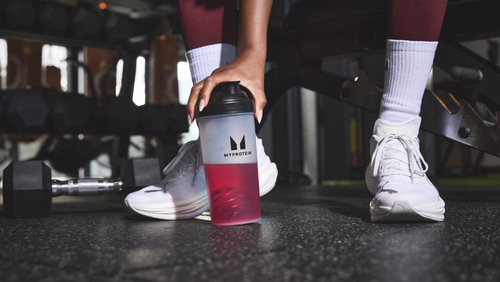
Nutrition for Muscle Growth: How Much Protein Do You Need?
All your protein questions answered....
Rehydration following a run to replace water lost in sweat is also advised. This can come from water, a recovery shake (containing protein and carbohydrates), energy drinks, and milk, which has also been shown to effectively rehydrate following exercise.5

How Much Water Should I Drink In A Day?
Hydration reminder incoming......
Foods to avoid:
In the build-up to a run it's best to avoid foods that may cause gastrointestinal distress or ‘sit heavy’ during your run. These include:
Not only high in calories, high-fat foods take a long time to digest. While it’s best to avoid greasy, fried food in general as part of a healthy diet, it’s especially important for runners.1
Fiber is a necessary part of a healthy diet (the NHS recommends 30g a day), but limiting fiber in the lead up to a run can help reduce gastrointestinal symptoms.1

Why Fiber is So Good For You + 28 High-Fiber Foods
Good news: Popcorn made the list....
Spicy food has been shown to increase symptoms of IBS. So, it’s best to keeping hot and spicy to a minimum before a run to help avoid any GI issues during your training.6
Although caffeine has been shown to enhance endurance, it’s best not to over-consume as excessive amounts have been shown to cause gastrointestinal issues.7

What’s Important to Remember When Fueling for a Run?
Go into each session with a specific goal in mind. This will allow you to match your fueling strategy appropriately.
If performing tempo or high intensity interval runs, optimal glycogen availability is important as higher intensity exercise predominantly uses glycogen as a fuel source.3
For lower intensity runs, aimed specifically at fat loss, glycogen storage is less important and training with lower glycogen availability may be more beneficial.3
Give yourself enough time after eating to allow your body to utilize the carbohydrates properly. Time your run for 2-3 hours after a large meal.2
Additionally, it’s best to avoid foods which may cause gastrointestinal distress such as foods high in fat, fiber, spicy food, and excessive caffeine.

Take Home Message
A good nutrition plan will help boost the performance and recovery of your runs.
A high-carbohydrate diet is best for runners looking to enhance performance whereas those looking to burn fat should review their carbohydrate intake.
The best pre-run meals and snacks will depend on your training goal, intensity, duration and the time of your run. Following a run, it’s important to consume carbohydrates, protein, and properly rehydrate for optimal recovery.
READ THESE NEXT:

10 Reasons Why You Bloat & How To Minimize It
Expert tips from a nutritionist....

8 Best Plant-Based Milks
Nutritionist compares protein, carb, and fat content of the most talked about pl...

What Is Carb Cycling And How Does It Work? Benefits And Tips
Cutting out carbs... Could you do it?...

Liam is a certified sport nutritionist with the International Society of Sport Nutrition and is enrolled on the British Dietetics Association’s Sport and Exercise Nutrition register. He has a Bachelor’s of Science in Sport and Exercise Science and is graduate of the ISSN Diploma in Applied Sport and Exercise Nutrition.
Liam is an experienced personal trainer, helping clients reach their health and fitness goals with practical, evidence informed exercise and nutrition advice.
In his spare time Liam has competed in numerous powerlifting competitions and enjoys hill walking, football and expanding his recipe repertoire in the kitchen. Find out more about Liam's experience here.
1. Nutrition and Athletic Performance. Medicine & Science in Sports and Exercise: March 2016 – Volume 48 – Issue 3 – p 543-548.
2. Kerksick C.M., Arent S., Schoenfeld B.J., Stout J.R., Campbell B., Wilborn C.D., Taylor L., Kalman D., Smith-Ryan A.E., Kreider R.B., et al. International Society of Sports Nutrition Position Stand: Nutrient Timing. J. Int. Soc. Sports Nutr. 2017;14:33. doi: 10.1186/s12970-017-0189-
3. Impey SG, Hearris MA, Hammond KM, Bartlett JD, Louis J, Close GL, Morton JP. Fuel for the Work Required: A Theoretical Framework for Carbohydrate Periodization and the Glycogen Threshold Hypothesis. Sports Med. 2018 May;48(5):1031-1048. doi: 10.1007/s40279-018-0867-7. PMID: 29453741; PMCID: PMC5889771
4. Vitale K, Getzin A. Nutrition and Supplement Update for the Endurance Athlete: Review and Recommendations. Nutrients. 2019 Jun 7;11(6):1289. doi: 10.3390/nu11061289. PMID: 31181616; PMCID: PMC6628334
5. Shirreffs, S., Watson, P., & Maughan, R. (2007). Milk as an effective post-exercise rehydration drink. British Journal of Nutrition, 98(1), 173-180.
6. Esmaillzadeh A, Keshteli AH, Hajishafiee M, Feizi A, Feinle-Bisset C, Adibi P. Consumption of spicy foods and the prevalence of irritable bowel syndrome. World J Gastroenterol. 2013 Oct 14;19(38):6465-71. doi: 10.3748/wjg.v19.i38.6465. PMID: 24151366; PMCID: PMC3801318.
7. Guest, N.S., VanDusseldorp, T.A., Nelson, M.T. et al. International society of sports nutrition position stand: caffeine and exercise performance. J Int Soc Sports Nutr 18, 1 (2021). https://doi.org/10.1186/s12970-020-00383-4
